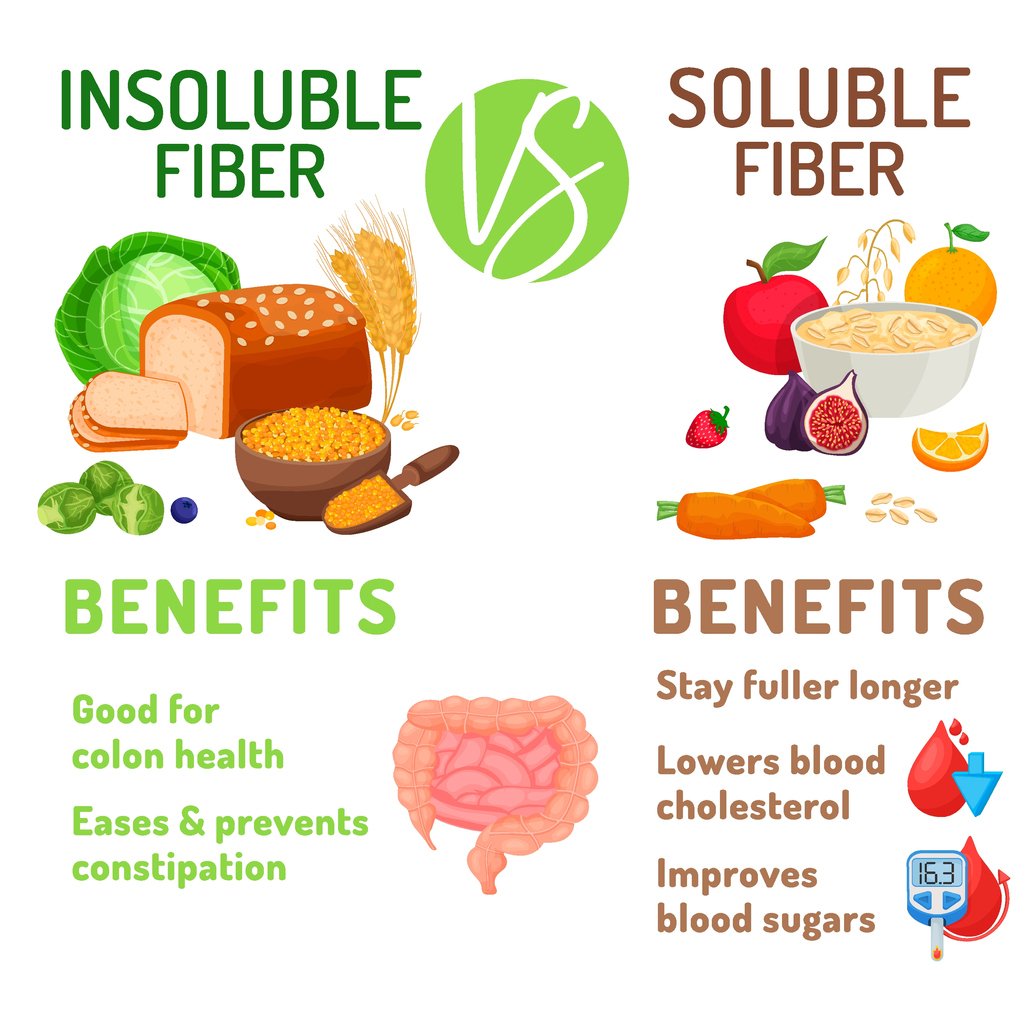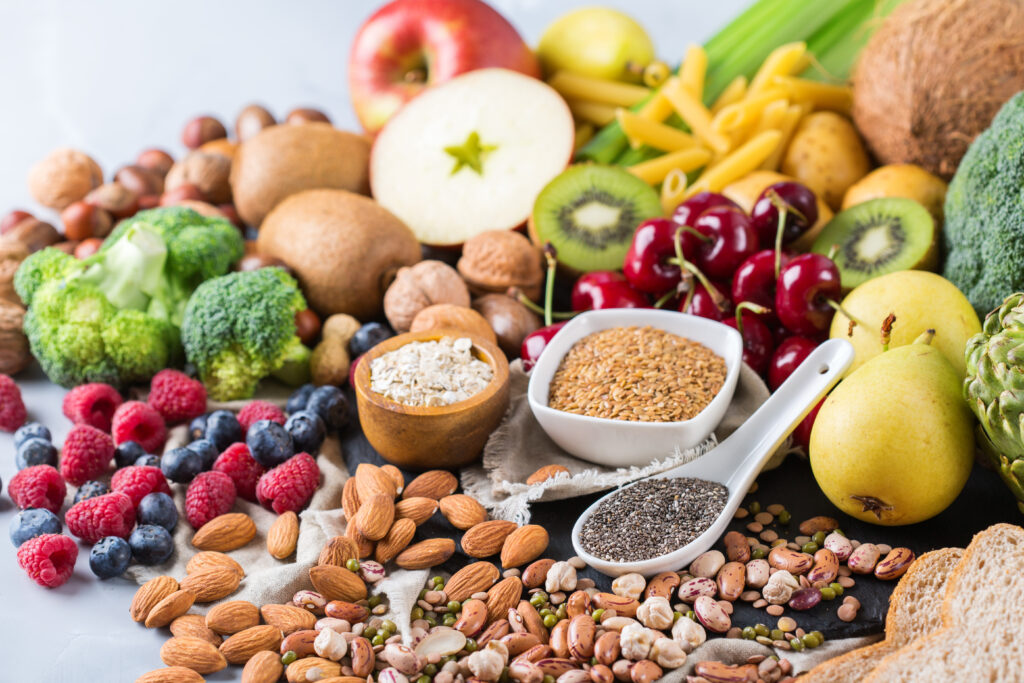Can fiber supplements replace natural fiber?
This article delves into the nuances of dietary fiber, comparing the efficacy of supplements to natural sources and exploring their respective impacts on health.
UNDERSTANDING DIETARY FIBER AND ITS IMPORTANCE
Dietary fiber is a type of plant-based carbohydrate that the human body cannot break down into glucose because it lacks the necessary enzymes. Although fiber passes through the digestive tract largely intact, its presence is essential for digestive health. There are two main types of fiber - soluble and insoluble - and both play different but equally important roles.
- Soluble fiber absorbs water and forms a gel-like substance, which slows down the digestive process. This helps sugar enter the bloodstream more gradually, contributing to stable blood glucose levels. Soluble fiber also helps reduce levels of "bad" cholesterol by binding to bile acids. It can be found in foods like oats, barley, lentils, apples, and citrus fruits.
- Insoluble fiber, on the other hand, does not dissolve in water and helps increase stool bulk. It stimulates peristalsis (the movement of the intestines), speeds up bowel movements, and helps prevent constipation. Good sources include wheat, bran, potatoes with the skin, carrots, and whole grain products.
In addition to these primary functions, fiber also acts as a prebiotic - it feeds beneficial gut bacteria that produce short-chain fatty acids (SCFAs). These compounds strengthen the gut lining, reduce inflammation, and even exhibit anti-cancer properties.
HOW MUCH FIBER DO WE NEED?
According to nutrition experts and health organizations, the recommended daily intake of fiber for an adult is approximately 25–30 grams. However, in reality, most modern diets are highly processed and limited in variety, resulting in an average intake of only 15–18 grams per day. This gap can have serious consequences for digestion, circulation, and metabolism.
To reach the recommended amount, one must consciously include certain fiber-rich foods in their diet. For example:
- 1 apple with skin – about 3–4 g of fiber
- 1 serving of cooked lentils (around 100 g) – 7–8 g
- 2 slices of rye bread – about 5–6 g
- 1 serving of cooked broccoli – around 4 g
- 1 tablespoon of flaxseeds – about 3 g
Thus, dietary habits need to be formed intentionally, rather than left to chance. If a person does not consume vegetables or fruits regularly, they risk not only digestive issues but also long-term health problems related to cholesterol, obesity, or diabetes.
WHEN DO FIBER SUPPLEMENTS BECOME NECESSARY?
Fiber supplements can be helpful in specific cases. They are most commonly recommended by doctors or dietitians when:
- A person suffers from Irritable Bowel Syndrome (IBS) and needs gentle regulation of bowel movements
- There is chronic constipation
- After a course of antibiotics, there is a need to restore the balance of gut microbiota
- The patient has elevated cholesterol levels, cannot tolerate statins, or is seeking additional supportive measures
Some of the most commonly used fiber supplements include:
- Psyllium husk – a highly soluble fiber that swells in water and acts as a gentle stool-regulating agent. It also helps lower cholesterol levels and supports overall gut function
- Inulin – a natural prebiotic that nourishes bifidobacteria in the gut, improving both immune function and the intestinal ecosystem
- Guar gum and pectin – milder forms of fiber, often combined with probiotics for a synergistic effect
- Some supplements contain combination formulas, where fiber is blended with magnesium salts, digestive enzymes, or vitamins for added benefits
However, it's important to remember that supplements are not miracle solutions. They are only effective when used correctly – in the proper dose, with sufficient water intake, and consistently. On the contrary, improper use may lead to discomfort or even harm.
POTENTIAL RISKS OF OVERRELIANCE ON FIBER SUPPLEMENTS
Although fiber supplements are generally considered safe, their use is not always without risk. Excessive intake or consumption without adequate water can lead to bloating, cramping, or even worsened constipation. For example, psyllium husk supplements, when taken without enough fluids, can cause intestinal blockage.
Some types of fiber - especially soluble fiber - may interact with medications by slowing down their absorption or reducing their effectiveness. It is particularly important to monitor fiber intake when using the following:
- Thyroid hormones (levothyroxine)
- Cardiac glycosides (digoxin)
- Iron supplements
- Fat-soluble vitamins
Additionally, individuals with gastrointestinal conditions such as Crohn’s disease or diverticulitis may experience irritation or worsening of symptoms when using certain fiber supplements.

Fiber supplements can be useful as a temporary solution or as a doctor-recommended addition, but they do not replace a balanced, fiber-rich diet. The best approach is to regularly consume vegetables, fruits, seeds, and whole grain products, and use supplements only when necessary to support gut health or address specific issues.
SOURCES OF INFORMATION
- Dietary Guidelines for Americans 2020–2025
- "Fiber and Prebiotics: Mechanisms and Health Benefits," Nutrients Journal
- Harvard T.H. Chan School of Public Health – The Nutrition Source: Fiber
- Mayo Clinic – Dietary fiber: Essential for a healthy diet
- International Scientific Association for Probiotics and Prebiotics (ISAPP) – Prebiotic fiber definition
- National Institutes of Health – Psyllium Monograph
- World Health Organization – Diet, Nutrition and the Prevention of Chronic Diseases
# skaidulos # sveika mityba